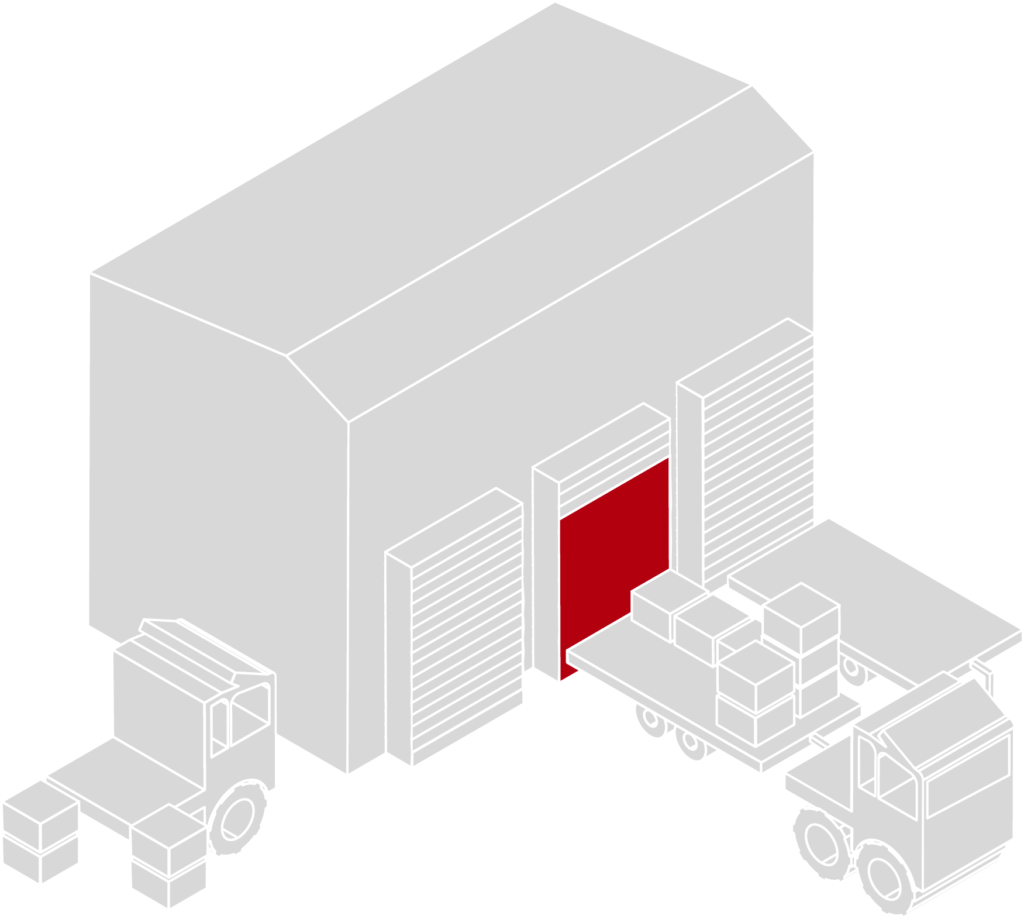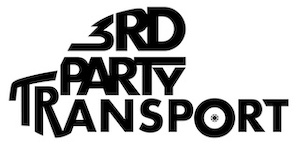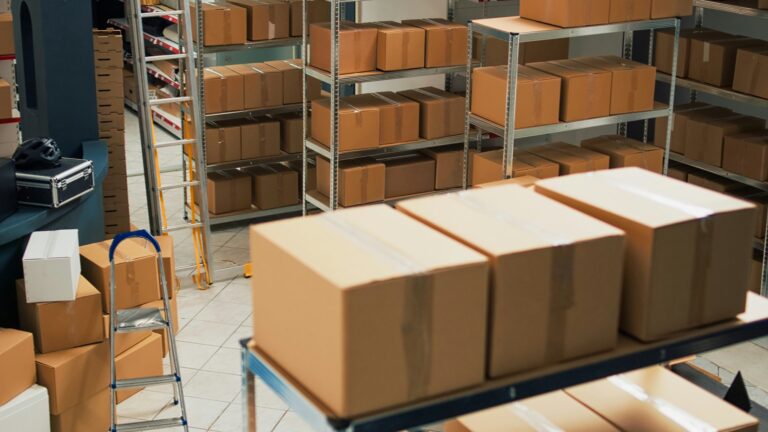Truckload (TL) Shipping Services are a preferred choice for companies with large, bulk shipments due to its efficiency, cost-effectiveness for large volumes, and faster delivery times. The direct shipping and dedicated service ensure that goods are transported efficiently and with a higher level of service compared to other shipping options.
Key Features of Truckload Shipping:
- Full Truck Capacity: Truckload shipping is ideal for shippers with large quantities of goods. In this service, a full truck is dedicated to a single load, which means the entire truck’s capacity is used for one shipment. The shipment occupies the entire truck, ensuring that the load is transported in one go without the need for sharing space with other shipments. This is ideal for companies with bulk orders or that need to ship large volumes of goods.
- Direct Shipping: One of the key advantages of truckload shipping is direct transportation. The goods are picked up at the origin and delivered directly to the destination, without any stops for additional pickups or deliveries. This results in fewer delays, no need to handle goods multiple times, and less chance for damage or mix-ups. Direct shipping ensures a streamlined and efficient journey for the freight, often reducing delivery times compared to other modes of transportation like less-than-truckload (LTL) shipping.
- Cost Structure: The cost of truckload shipping is typically based on the distance to be traveled, the weight of the load, and the type of cargo being transported. Since a full truck is dedicated to one shipment, the cost is often higher than less-than-truckload (LTL) shipping, which shares space on the truck with other shipments. However, truckload shipping can offer more cost-effective pricing per unit for larger shipments, as it avoids the additional fees and handling costs associated with LTL shipping. Additionally, for companies with larger and more frequent shipments, truckload services can offer better overall cost efficiency.
- Faster Transit: Truckload shipments generally offer faster transit times than other shipping options. Since the truck is dedicated to one shipment, it travels directly from the point of origin to the destination without delays from other shipments. This allows for a more predictable and often quicker delivery time. Drivers can choose the fastest routes without needing to make multiple stops, which is especially important for time-sensitive or perishable goods.
- Dedicated Service: With truckload shipping, the shipment receives a dedicated service, meaning the entire truck is assigned solely to the specific load and its route. This dedicated service ensures that the goods are handled with greater care and priority, as there are no competing shipments sharing space or requiring additional stops. Additionally, companies can schedule specific delivery times and pick-up windows, providing greater flexibility and control over the logistics process. For high-value or time-sensitive cargo, dedicated truckload services offer more security and reliability.

Types of Truckload Services:
- Dry Van: Dry van truckload service is the most common and versatile form of truckload shipping. It involves transporting goods in a fully enclosed, weatherproof trailer (the “dry van”). This type of truck is ideal for most general cargo, including boxed, palletized, or non-perishable goods. It provides protection from the elements and security for a wide variety of shipments.
- Reefer (Refrigerated): Reefer truckload services use refrigerated trailers to transport temperature-sensitive goods. These trailers maintain a controlled environment, making them ideal for perishable items such as food, pharmaceuticals, and chemicals that require consistent cooling during transit.
- Flatbed: Flatbed truckload service involves transporting cargo on an open-air, flatbed trailer. This type is used for large, bulky, or heavy items that do not require enclosed storage, such as construction materials, heavy machinery, or oversized equipment. Flatbed trucks are ideal for items that need to be loaded or unloaded from the side or top and are often used for goods that can’t fit inside a dry van.
- Specialized Equipment: Specialized truckload services use custom trailers for unique shipping needs. This can include step decks for taller loads, double-drop trailers for oversized shipments, or other specialized trailers designed for transporting unusual or heavy cargo that doesn’t fit standard equipment.
Benefits of Truckload Shipping:
- Cost-Effective for Large Shipments: For large shipments, truckload shipping can be more cost-effective than other methods. Since the entire truck is dedicated to a single load, the cost per unit can be lower, especially for bulk shipments, making it a more economical option for companies with high-volume needs.
- Reduced Risk of Damage: With truckload shipping, the goods are the only cargo on the truck, reducing the risk of damage. There are fewer chances for items to be mishandled during transit because the load is not transferred between multiple carriers or shared with other shipments.
- Greater Control Over Delivery: Truckload shipping provides more control over scheduling and route planning. Shippers can set specific pickup and delivery times, and since the truck is dedicated to one load, the delivery is more predictable and efficient.
- Flexible Options: Truckload shipping offers flexibility in terms of equipment and services. Depending on the cargo type, you can choose from different truck types (e.g., dry van, flatbed, or reefer) or even specialized equipment for unique needs, allowing for customized solutions that meet various shipping requirements.
When to Choose Truckload Shipping:
- Large Volumes: When shipping large quantities of goods, truckload shipping is cost-effective and efficient. Since the entire truck is dedicated to a single shipment, it allows for optimal use of space and faster transportation of bulk items.
- Time Sensitivity: For shipments that need to arrive quickly, truckload shipping is a great option. The direct route and dedicated truck ensure faster delivery times with fewer delays, making it perfect for time-sensitive deliveries.
- High-Value or Fragile Goods: When shipping valuable or delicate items, truckload shipping reduces the risk of damage, as the goods are the only cargo on the truck. This ensures more careful handling and reduces the chance of issues like theft or mishandling.
- Specific Equipment Needs: If your goods require specialized equipment (like refrigerated trailers for perishables or flatbeds for oversized items), truckload shipping offers the flexibility to choose the right type of truck or trailer to meet your specific requirements.
Truckload shipping is perfect for businesses that frequently transport large volumes of goods and need dependable, consistent service. It is particularly advantageous when time, efficiency, and the safety of the cargo are essential.
Truckload (TL) Shipping Services refer to a type of freight transportation where an entire truck is used to ship a full load of goods from one location to another. Unlike Less-Than-Truckload (LTL) shipping, where multiple shippers share space on the same truck, truckload shipping involves a single shipper utilizing the full capacity of the truck for their shipment.
Key Features of Truckload Shipping:
- Full Truck Capacity: In truckload shipping, the shipment occupies the entire truck, typically ranging from 26 feet to 53 feet in length. This makes it ideal for large, bulky shipments.
- Direct Shipping: Unlike LTL, where goods may be transferred between different trucks or hubs, truckload shipments are generally direct from origin to destination with fewer stops. This helps reduce transit times and lowers the risk of damage.
- Cost Structure: Since you are booking the entire truck, truckload shipping is often more cost-effective for large shipments that fill or nearly fill a truck. Costs are typically calculated based on distance, weight, and size of the load.
- Faster Transit: Truckload shipments usually move faster than LTL shipments because there are fewer handling and transfer points. This can be especially important for time-sensitive deliveries.
- Dedicated Service: With truckload shipping, the vehicle and driver are dedicated to your shipment, meaning there are no other customers’ goods being transported at the same time. This often allows for more reliable scheduling and delivery windows.

Types of Truckload Services:
- Dry Van: The most common type, using standard enclosed trailers for general freight.
Reefer (Refrigerated): For temperature-sensitive goods like food, pharmaceuticals, or chemicals. - Flatbed: For oversized or unusually shaped items that need to be loaded from the top or sides.
- Specialized Equipment: In some cases, specialized trucks like tankers or lowboys are used for specific types of cargo, such as liquids or heavy machinery.
Benefits of Truckload Shipping:
- Cost-Effective for Large Shipments: If you’re shipping enough goods to fill a truck, it can often be cheaper than using LTL, especially for longer distances.
- Reduced Risk of Damage: With fewer handoffs and transfers, there’s less chance for items to be damaged during transport.
- Greater Control Over Delivery: The direct route and dedicated service often allow for more predictable timelines and delivery windows.
- Flexible Options: A range of truck types and configurations are available to meet specific needs, from basic dry van shipping to specialized or refrigerated freight.
When to Choose Truckload Shipping:
- Large Volumes: When the shipment is large enough to fill or nearly fill a truck.
Time Sensitivity: When faster delivery is a priority and you need a direct route with minimal delays. - High-Value or Fragile Goods: When you need the added security and reliability of dedicated transport with fewer handling risks.
- Specific Equipment Needs: When goods require specific transportation methods, such as refrigerated or flatbed trucks.
Truckload shipping is ideal for businesses that regularly move large quantities of goods and require consistent, reliable service. It’s especially beneficial when time, efficiency, and cargo protection are top priorities.



